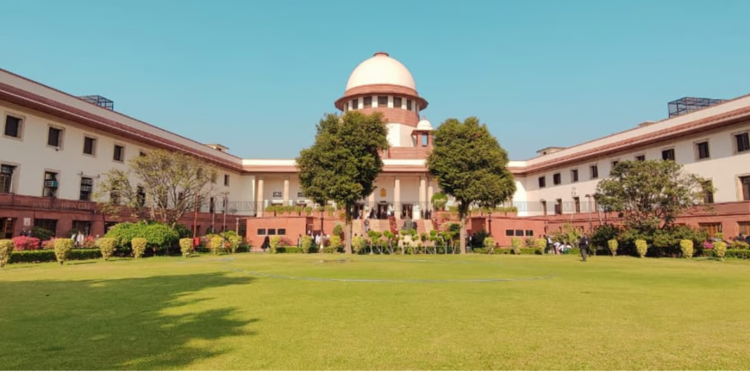The Supreme Court on Tuesday criticized West Bengal Minister Firhad Hakim for canceling a tender for the maintenance of two underpasses in Kolkata [Subodh Kumar Singh Rathour v Chief Executive Officer and Ors].
A Bench comprising Chief Justice of India (CJI) DY Chandrachud, Justice JB Pardiwala, and Justice Manoj Misra emphasized that public authorities should be cautious about disturbing or evading contractual obligations through methods outside the contract terms.
“The litigation at hand is a textbook example of arbitrary exercise of power by the respondent in canceling the tender issued to the appellant, prompted by the concerned Minister-In-Charge, rendering the Notice of Cancellation dated 07.02.2023 illegal,” the Court observed.
Hakim serves as the Minister-In-Charge of the Department of Urban Development and Municipal Affairs and is the ex-officio Chairman of the Kolkata Metropolitan Development Authority (KMDA).
The Supreme Court was addressing an appeal against the Calcutta High Court’s decision to uphold the cancellation of the tender issued by KMDA in 2022.
In February 2023, the tender was canceled due to a purported technical fault, claiming it was ‘non-specific’ and ‘not well-defined’.
Reviewing the High Court decision, the Supreme Court examined the internal deliberations of KMDA officials and found that no KMDA official had suggested canceling the tender. Instead, the cancellation directive came from the Minister.
“Note #108 dated 24.01.2023 shows that the concerned minister instructed officials to cancel the tender during his visit. Following this, as per Note #109 dated 02.02.2023, a meeting was immediately convened to undertake steps for cancellation even though legal advice had yet to be obtained, resulting in the notice of cancellation dated 07.02.2023,” the Court noted.
The Court added that the Minister’s decision to cancel the tender due to a purported ‘change in policy’ was “without any application of mind, capricious and influenced by malice”.
In light of this, the Court set aside the notice of cancellation.
The Supreme Court underscored the importance of maintaining the integrity of public tenders, which uphold principles of equal opportunity and fairness.
“Once a contract is established through a valid tendering process, its termination must strictly adhere to the contract terms. Executive powers to terminate should only be exercised in exceptional cases by public authorities. Courts must zealously protect the integrity of duly conducted and concluded tenders to ensure that the larger public interest of upholding contract bindingness is not undermined by capricious or arbitrary actions by the State,” the Court stated.
The Supreme Court cautioned against canceling public tenders without proper justification.
“We do not deny the State’s power to alter or cancel a contract it has entered into. However, any decision to alter or cancel a contract on grounds of public interest or policy change must be bona fide and earnestly reflected in the decision-making process and the final decision itself,” the Court added.
Senior Advocate Shyam Divan represented the appellant, the original winner of the tender.
Senior Advocate Rakesh Dwivedi represented the Kolkata Metropolitan Development Authority and its officials.

















